As Tunisia’s newly-elected parliamentarians take their seats, a number of democratic reforms await their attention. Amnesty International has already highlighted five key areas, including the state of emergency, security force abuses, transitional justice, the constitutional court, and the death penalty. To this list we would humbly add a sixth: reforming, if not abolishing, the military courts.
Tunisia’s military courts continue to operate under the 1957 Code of Military Justice, which permits military trials of civilians for insulting the military or undermining its morale, in addition to national security related crimes such as treason and espionage. While the 2014 constitution stipulates that the military courts are only “competent to deal with military crimes,” a transitional article permits military trials of civilians until the code is amended in line with the constitution. Tunisia should move swiftly to do so to end such trials.
In the last five years, Tunisia’s three military courts — in Tunis, Sfax, and Kef — have tried a number of civilians. In the most high profile case, Yassine Ayari, a blogger and current member of parliament, was sentenced in absentia in 2014 to three years in prison for publishing comments on Facebook that “defamed” the military command and “undermined the army’s morale.” At least ten other bloggers and social media activists have been investigated on similar defamation charges by both civilian and military courts.
Beyond defamation, military courts have also been used to target political opponents. In May 2017, Prime Minister Youssef Chahed asked a military court to try prominent Tunisian businessman Chafik Jarraya and seven other personalities, ostensibly for corruption and treason, but likely because they had been funding rivals within the party Chahed belonged to at the time, Nidaa Tounes. In November 2018, Slim Riahi, then-secretary-general of Nidaa Tounes, filed a case in a military court against Chahed accusing him of plotting a coup (the case was soon dismissed). Finally, the late President Beji Caid Essebsi in December 2018 asked the judiciary to investigate his primary political rival, the Ennahda party, on accusations of harboring a secret military apparatus.
Military officers and judges we spoke with over the last two years argued that these civilians should be tried in military courts, since they either (verbally) attacked the army or allegedly committed a serious national security crime like treason. They also noted that the military justice system underwent important reforms through decrees 69 and 70 in July 2011, which established a military court of appeals and permitted victims to file civil claims for indemnities.
However, there remain major shortcomings inherent to military courts. First, both the military and civilian judges that staff the military courts are appointed by the president with approval of the minister of defense (article 11); they are not independent. Moreover, the defense minister controls the pay and promotions of the military judges, further undermining, at the very least, the impression of impartiality. As Human Rights Watch observed with regards to the military trials of former President Zine El Abidine Ben Ali and his associates, “there was a perception on the part of victims that the executive had undue influence on the military courts’ decision to hand down lenient sentences on those convicted.”
In addition, the military courts’ procedures lack the transparency of their civilian counterparts. Several lawyers have complained that their access to information about their clients has been restricted for national security reasons. For the same reasons, the trials themselves are not always public.
As a result of these limitations, established democracies have restricted the use of military courts only to military personnel or abolished them entirely. In France, for instance, the military justice system was completely dissolved in 2012 after serious accusations of partiality and lack of transparency. Since then, military personnel are tried by civilian judges specialized in military affairs.
Short of abolishing the military courts, Tunisia should at least pursue three measures to reform its military justice system. As mentioned earlier, the 1957 code of military justice should be amended in line with the 2014 constitution to permit military trials only for military crimes, ideally explicitly excluding civilians. Second, the parliamentary commission on security and defense should be empowered with the staff and resources needed to oversee the military justice system. Finally, the nominations and promotions of military prosecutors and judges should be made independent from the executive, like they are for civilian courts. Such reforms would make for a quick and easy “win” for the new parliament to meet the pro-democracy and pro-revolution demands of its constituents.
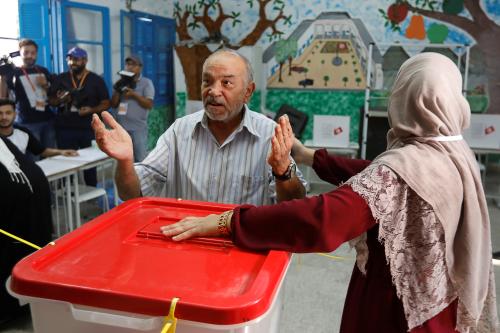

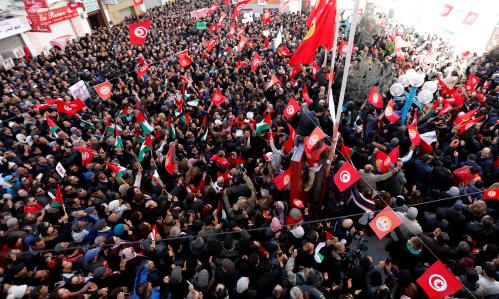

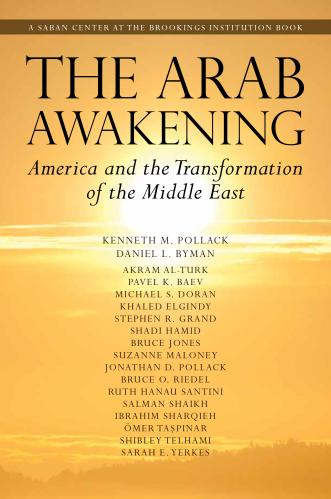
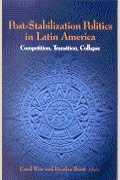
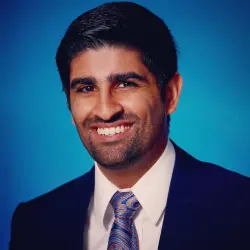


Commentary
Reforming Tunisia’s military courts
November 7, 2019